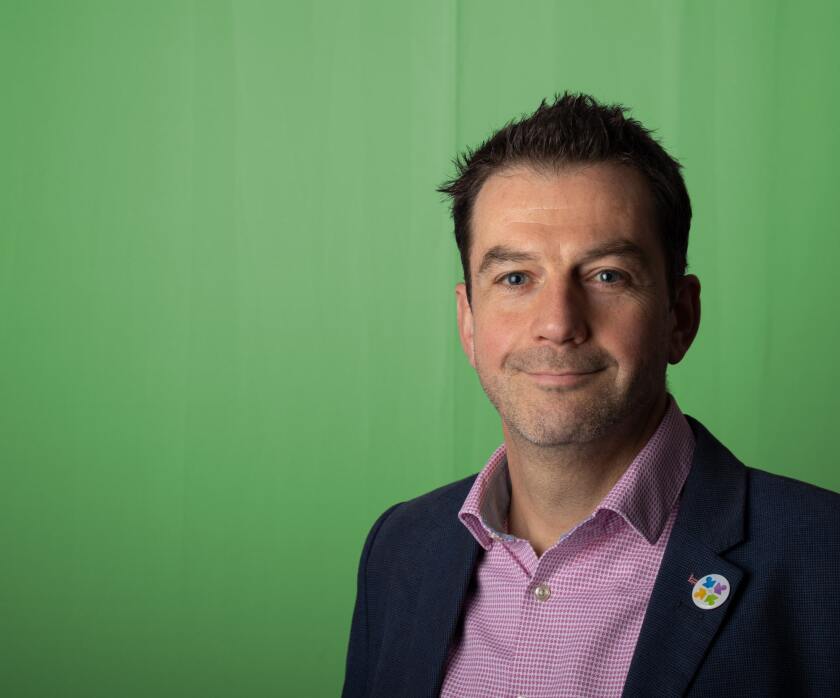Welcome to the latest instalment of Managing IP’s ‘Five minutes with’ series, where we learn more about IP practitioners on a personal as well as a professional level. This time we have Ben Buchanan, deputy director of patents at the UKIPO.
Someone asks you at a party what you do for a living. What do you say?
I’d say I help people make the most of their ideas. If they were still listening, I’d probably point to a mobile phone as an example of something we all use that showcases patents, trademarks, copyright and design. It helps people realise that IP is something we all touch and use.
Talk us through a typical working day.
My diary is blocked out before 10am. I use that space to clear emails, then if I can, I head out for a run. The day always goes better after a run. I have to switch context regularly; I might have one-to-ones, a committee or leadership team meeting, a tribunal hearing, or one of the fora I attend and have previously chaired to improve diversity and inclusion within the government's science and engineering and IP professions.
I often work through lunch but take a break in the afternoon. After 4pm I do my focus work; writing reports, or reading papers for the next day. I’m usually working from home but visit the office a couple of times a week, when I might attend in-office events or get my teams together face-to-face. My days tend to be very well planned, and the challenge is fitting in the unforeseen, and usually urgent demands.
What are you working on at the moment?
I work with IP Inclusive, an organisation which improves awareness, access and opportunities within IP. I’ve recently stepped back from chairing the advisory board, and we are currently prioritising allyship among our network of communities, events and resources on everything from mental health to the menopause, and explaining the benefits of inclusive behaviour to business and IP users.
I also work with the government science and engineering profession where I represent the UKIPO on the project board which decides how to deliver the profession’s strategic goals.
This all goes on around my day job which is leading patent examination teams covering AI, fintech, blockchain, computing, video and electronics.
Does one big piece of work usually take priority or are you juggling multiple things?
I’m normally juggling. My core role is leading operational teams to deliver patent services to customers in digital technology. I’m also a hearing officer for the patents tribunal. However, I enjoy a portfolio of wider work in diversity, inclusion and engagement. I sit on the Brilliant Place to Work Committee which is delegated by the executive board to govern people, accommodation and finance issues.
However, when I have a hearing decision to write, or if I take on a big project, I have to discipline myself to set time aside and focus on the big thing, whilst delegating or carefully scheduling the rest of my day to clear the decks.
What is the most exciting aspect of your role and what is the most stressful?
Right now, the UKIPO is going through a transformation programme called ‘One IPO’ to update its systems, services and our customers’ experience to ensure these are fit for the future.
Behind the scenes, there is also a huge cultural journey underway to ensure that as an organisation and a community, we are working collectively to fulfil our ambition to be the best IP office.
These are different but complementary challenges and equally exciting.
My passion lies with the second of these, but the two together are essential for success. It would be remiss of me to suggest that changes of this magnitude are without stress.
In any situation where people have questions about the impact of change on them, their wellbeing risks being avoidably affected. We must be really clear in how we communicate, learn lessons where we need to, be open, and adapt.
Tell us the key characteristics that make a successful IP lawyer/practitioner.
Attention to detail, flexibility of thought, emotional intelligence and harnessing inclusion. I think in IP the blend of technical, legal, interpersonal and leadership skills – at all levels – is essential. But of course, the best way to achieve these is through the active inclusion of varied and flexible talent. So, I’d pick all four and make it happen!
What is the most common misconception about IP?
That the UKIPO is there to frustrate the granting of IP rights. While I wouldn’t say this is a common misconception, I do understand why it might on occasion feel that way to some. But that’s only because we really want to ensure granted rights are properly assessed, stand up to scrutiny, and ultimately give the customer and society what they need.
To do this we encourage customers to email, phone or video call to talk things through before we give a formal response, so that we can work together to grant a valid, high-quality right. Because ultimately, we all want the same thing.
What or who inspires you?
I’m inspired by innovation and entrepreneurship. I think that’s why I do what I do. The visionaries who take the lead and the skilled people who make it happen are sometimes one and the same person. In work, I’m inspired by our approach to continuous improvement, and the empowerment to just give something a go.
If you weren’t in IP, what would you be doing?
Buying, selling and restoring classic cars. I actually did a higher national diploma in vehicle restoration after my engineering degree and then made a decision not to mix business with pleasure. Either that or archaeology.
Any advice you would give your younger self?
Find your comfort zone, and then leave it behind.











